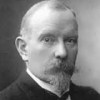May I join you in the doghouse, Rover?
I wish to retire till the party’s over.Ogden Nash (1902-1971) American poet
“Children’s Party,” ll. 1-2, Many Long Years Ago (1945)
(Source)
Quotations about:
fatigue
Note not all quotations have been tagged, so Search may find additional quotes on this topic.
A banquet is probably the most fatiguing thing in the world except ditch-digging.
Mark Twain (1835-1910) American writer [pseud. of Samuel Clemens]
Dictation (1907-07-30)
(Source)
In Benjamin Griffin and Harriet Elinor Smith, eds., Autobiography of Mark Twain, Vol. 3 (pub. 2015).
Also recorded in Bernard DeVoto, ed., Mark Twain in Eruption, "The Last Visit to England," ch. 1 "White and Red" (1940). DeVoto identifies it coming from the dictations of July-August 1907.
LAZARUS: You’re so sentimental, Doctor. Maybe you are older than you look.
THE DOCTOR: I’m old enough to know that a longer life isn’t always a better one. In the end, you just get tired; tired of the struggle, tired of losing everyone that matters to you, tired of watching everything you love turn to dust. If you live long enough, Lazarus, the only certainty left is that you’ll end up alone.
LAZARUS: That’s a price worth paying.
THE DOCTOR: Is it?
Stephen Greenhorn (b. 1964) Scottish playwright and screenwriter
Doctor Who, (2005) 03×06 “The Lazarus Experiment” (2007-05-05)
(Source)
About one-half the discumfert ov this life iz the result ov gitting tired ov ourselfs.
[About one-half the discomfort of this life is the result of getting tired of ourselves.]
Josh Billings (1818-1885) American humorist, aphorist [pseud. of Henry Wheeler Shaw]
Everybody’s Friend, Or; Josh Billing’s Encyclopedia and Proverbial Philosophy of Wit and Humor, ch. 132 “Affurisms: Chips” (1874)
(Source)
If life is a play, then old age is its last act — and we ought to leave the theater when we are weary or, even better, when we are satisfied.
[Senectus autem aetatis est peractio tamquam fabulae, cuius defetigationem fugere debemus, praesertim adiuncta satietate.]Marcus Tullius Cicero (106-43 BC) Roman orator, statesman, philosopher
De Senectute [Cato Maior; On Old Age], ch. 23 / sec. 85 (23.85) (44 BC) [tr. Cobbold (2012)]
(Source)
(Source (Latin)). Alternate translations:
The poete whiche rehercith in the Scene in some fable owght to beware that he make not werye and that he noye not his heerers by ouer long rehercyng the fable. So that men owght not desire to lyve ouir olde age seeyng pryncypally that in that age or nevir he is fulle weerye for to lyve.
[tr. Worcester/Worcester/Scrope (1481)]
And old age is, as it were, the peroration or final end of a man's time in this world, much like to the epilogue or catastrophe of an interlude, the wearisome repetition or defatigation whereof we ought to avoid and eschew, and especially when we are fully cloyed with satiety.
[tr. Newton (1569)]
But old age is the last act of our life as of a play, of which there ought to be an end, especially when there is satiety and fulnesse of time joyned with it.
[tr. Austin (1648)]
Good Acts (if long) seem tedious, so is Age
Acting too long upon this Earth her Stage.
[tr. Denham (1669)]
For in Old Age we are as in the last Act of a Play, in which we ought to take our Leave when fully satisfied with the Enjoyment.
[tr. J. D. (1744)]
And as the whole Course of Life but too much resembles a Farce, of which Old-Age is the last Act; when we have enough of it, 'tis most prudent to retire, and not to make a Fatigue of what we should endeavour to make only an Entertainment.
[tr. Logan (1744)]
In fine, old age may be considered as the last scene in the great drama of life, and one would not, surely, wish to lengthen out his part till he sunk down sated with repetition and exhausted with fatigue.
[tr. Melmoth (1773)]
Now old age is the completion of life, as of a play, weariness of which we ought to avoid, especially when satiety is added.
[Cornish Bros. ed. (1847)]
Now old age is the consummation of life, just as of a play; from the fatigue of which we ought to escape, especially when satiety is superadded.
[tr. Edmonds (1874)]
Old age is the closing act of life, as of a drama, and we ought in this to avoid utter weariness, especially if the act has been prolonged beyond its due length.
[tr. Peabody (1884)]
Now, old age is as it were the playing out of the drama, the full fatigue of which we should shun, especially when we also feel that we have had more than enough of it.
[tr. Shuckburgh (1895)]
Age; is; the end; of life, as of a play:
We should avoid the weariness that comes,
The more, if we've enjoyed it to the full.
[tr. Allison (1916)]
Moreover, old age is the final scene, as it were, in life's drama, from which we ought to escape when it grows wearisome and, certainly, when we have had our fill.
[tr. Falconer (1923)]
When life's last act, old age, has become wearisome, when we have had enough, the time has come to go.
[tr. Grant (1960, 1971 ed.)]
Yes, old age is, so to speak, the last scene in the play; when we find it beginning to be tiresome we should beat a hasty retreat from it, especially when we feel as if we had seen all this before, entirely too many times.
[tr. Copley (1967)]
Old age is the last act of the drama of life and when it is over we ought to leave it, especially if we have achieved a good fullness in it.
[tr. Gerberding (2014)]
Old age is but life’s drama’s final curtain.
[tr. Bozzi (2015)]
Old age is the final act in the play of life. When we have had enough and are weary, it is time to go.
[tr. Freeman (2016)]
I don’t enjoy any of the process of writing. I enjoy it when it goes on if it zings and it has great warmth and import and it’s successful. Yeah, that’s when I enjoy it. But during the desperate, tough time of creating it, there’s not much I enjoy about it. It tires me and lays me out, which is sort of the way I feel now. Tired.
Rod Serling (1924-1975) American screenwriter, playwright, television producer, narrator
“Rod Serling: The Facts of Life,” interview by Linda Brevelle (4 Mar 1975)
(Source)
The interview was held less than four months before his death from cancer.
It was the time when sleep first comes to weary mortals,
creeping over us, the sweetest gift of gods.[Tempus erat quo prima quies mortalibus aegris
incipit et dono divum gratissima serpit.]Virgil (70-19 BC) Roman poet [b. Publius Vergilius Maro; also Vergil]
The Aeneid [Ænē̆is], Book 2, l. 268ff (2.268-269) (29-19 BC) [tr. Bartsch (2021)]
(Source)
(Source (Latin)). Alternate translations:
It was the time, first sleep the weary soule
Possest, and heavens best gift on mortalls stole.
[tr. Ogilby (1649)]'T was in the dead of night, when sleep repairs
Our bodies worn with toils, our minds with cares.
[tr. Dryden (1697)]
It was the time when the first sleep invades languid mortals, and steals upon them, by the gift of the gods, most sweet.
[tr. Davidson/Buckley (1854)]
It was the hour when Heaven gives rest
To weary man, the first and best.
[tr. Conington (1866)]
It was the hour when first their sleep begins
For wretched mortals, and most gratefully
Creeps over them, by bounty of the gods.
[tr. Cranch (1872), l. 271ff]
It was the time when by the gift of God rest comes stealing first and sweetest on unhappy men.
[tr. Mackail (1885)]
It was the time when that first peace of sick men hath begun,
By very gift of God o'er all in sweetest wise to creep.
[tr. Morris (1900)]
'Twas now the time, when on tired mortals crept
First slumber, sweetest that celestials pour.
[tr. Taylor (1907), st. 36, l. 316ff]
That hour it was when heaven's first gift of sleep
on weary hearts of men most sweetly steals.
[tr. Williams (1910)]
It was the hour when for weary mortals their first rest begins, and by grace of the gods steals over them most sweet.
[tr. Fairclough (1916)]
It was the time when the first sleep begins
For weary mortals, heaven’s most welcome gift.
[tr. Humphries (1951)]
It was the hour when worn-out men begin to get
Some rest, and by god's grace genial sleep steals over them.
[tr. Day Lewis (1952)]
It was the hour when for troubled mortals
rest -- sweetest gift of gods that glides to men --
has just begun.
[tr. Mandelbaum (1971), l. 371ff]
That time of night it was when the first sleep,
Gift of the gods, begins for ill mankind,
Arriving gradually, delicious rest.
[tr. Fitzgerald (1981), l. 360ff]
It was the time when rest, the most grateful gift of the gods, was first beginning to creep over suffering mortals.
[tr. West (1990)]
It was the hour when first sleep begins for weary mortals,
and steals over them as the sweetest gift of the gods.
[tr. Kline (2002)]
At that late hour, when sleep begins to drift
Upon fretful humanity as grace from the gods ....
[tr. Lombardo (2005), l. 319ff]
This was the hour when rest, that gift of the gods
most heaven-sent, first comes to beleaguered mortals,
creeping over us now.
[tr. Fagles (2006), l. 339ff]
There is a time for long tales, but there is also a time for sleep.
[Ὥρη μὲν πολέων μύθων, ὥρη δὲ καὶ ὕπνου.]
Homer (fl. 7th-8th C. BC) Greek author
The Odyssey [Ὀδύσσεια], Book 11, l. 379 (11.379) [Odysseus] (c. 700 BC) [tr. Rieu (1946)]
(Source)
On being asked by King Alcinoüs to continue his tale of journeying to the Land of the Dead. Original Greek. Alternate translations:
- '“Most eminent king,” said he, “times all must keep, / There’s time to speak much, time as much to sleep.' [tr. Chapman (1616)]
- "There is a time for talk, a time for rest." [tr. Hobbes (1675), l. 362]
- "Since yet the early hour of night allows / Time for discourse, and time for soft repose." [tr. Pope (1725)]
- "The time suffices yet / For converse both and sleep." [tr. Cowper (1792), l. 460-61]
- "Night is the time for converse, night for rest." [tr. Worsley (1861), st. 54]
- "A time there is for speech / Howe'er prolong'd: a time, too, for repose." [tr. Musgrave (1869), l. 585]
- "A time there is for tales -- and a time for sleep!" [tr. Bigge-Wither (1869), l. 378]
- "There is a time for many words and there is a time for sleep." [tr. Butcher/Lang (1879)]
- "Time is for words abundant, and time for sleep maybe." [tr. Morris (1887)]
- "There is a time for stories and a time for sleep." [tr. Palmer (1891)]
- "There is a time for making speeches, and a time for going to bed." [tr. Butler (1898)]
- "There is a time for many words and there is a time also for sleep." [tr. Murray (1919)]
- "Surely there is a time for long speaking and a time for sleep." [tr. Lawrence (1932)]
- "There is a time for story telling; there is also a time for sleep." [tr. Fitzgerald (1961)]
- "There is a time for many words, and a time for sleeping." [tr. Lattimore (1965)]
- "It's true that there's still time for tales and talk, / yet there is, too, a time for sleep." [tr. Mandelbaum (1990)]
- "There is a time for many words, a time for sleep as well." [tr. Fagles (1996)]
- "There is a time for words and a time for sleep." [tr. Lombardo (2000), l. 389]
- "There is a time for long tales, but there is also a time for sleep." [tr. DCH Rieu (2002)]
- "There is a time for long tales, and there is a time for sleep." [tr. Verity (2016)]
- "It is a time for many tales, but also a time for sleep." [tr. Wilson (2017)]
- "There's a time for long stories, and a time for sleep." [tr. Green (2018)]
- "There’s a time / for many stories and a time for sleep." [tr. Johnston (2019), l. 477-78]
When a Man’s exhausted, wine will build his strength.
[Ἀνδρὶ δὲ κεκμηῶτι μένος μέγα οἶνος ἀέξει.]
Homer (fl. 7th-8th C. BC) Greek author
The Iliad [Ἰλιάς], Book 6, l. 261 (6.261) (c. 750 BC) [tr. Fagles (1990), l. 310]
Alt. trans.
For to a man dismay’d
With careful spirits, or too much with labour overlaid,
Wine brings much rescue, strength'ning much the body and the mind.
[tr. Chapman (1611), ll. 274-76]
Then with a plenteous draught refresh thy soul,
And draw new spirits from the generous bowl.
[tr. Pope (1715-20)]
For wine is mighty to renew the strength
Of weary man.
[tr. Cowper (1791), ll. 318-19]
For to a wearied man wine greatly increases strength.
[tr. Buckley (1860)]
For great the strength
Which gen'rous wine imparts to men who toil.
[tr. Derby (1864), ll. 306-07]
When a man is awearied wine greatly maketh his strength to wax.
[tr. Leaf/Lang/Myers (1891)]
Wine gives a man fresh strength when he is wearied.
[tr. Butler (1898)]
When a man is spent with toil wine greatly maketh his strength to wax.
[tr. Murray (1924)]
In a tired man, wine will bring back his strength to its bigness.
[tr. Lattimore (1951)]
Wine will restore a man when he is weary as you are.
[tr. Fitzgerald (1974)]
When someone is fatigued, wine greatly increases his power.
[tr. Merrill (2007)]
We have no small hope in our elections, but it is still uncertain. There is some suspicion of a dictatorship. We have peace in public but it is the calm of an old and tired state, not one giving consent.
[Erat non nulla spes comitiorum sed incerta, erat aliqua suspicio dictaturae, ne ea quidem certa, summum otium forense sed senescentis magis civitatis quam acquiescentis]
Marcus Tullius Cicero (106-43 BC) Roman orator, statesman, philosopher
Letters to Quintus #19 (2.15) (Jun, AD 54) [tr. Bailey (1999)]
(Source)
Alt. trans.:
- "There was some expectation of the comitia, but a doubtful one: there was some suspicion of a dictatorship, but not even that was certain. There is a perfect cessation of all business in the courts of law, but more as if the state was growing indolent from age than from real tranquility." [Letter 14, tr. Watson (1855)]
- "There is some hope of elections, but doubtful; some suspicion of a Dictatorship, but that too not definite; peace reigns in the Forum, but it's the peace of a senile community rather than a contented one." [Letter 19 (II.15), tr. @sentantiq (2020)]
Political campaigns tend to be exercises in progressive degeneration. The steady increase, week after week, in excitement and strain and weariness produces an oversimplification of issues, an over dramatization of alternatives, a growing susceptibility to extreme and catastrophic statements. Candidates find themselves shouting things in the fall that they would never dream of whispering in the summer.
Arthur M. Schlesinger, Jr. (1917-2007) American historian, author, social critic
The Age of Roosevelt, ch. 33, sec. 8 (1960)
(Source)
When we are tired, we are attacked by ideas we conquered long ago.
Friedrich Nietzsche (1844-1900) German philosopher and poet
(Attributed)
Frequently attributed to Nietzsche, starting in the late 1950s, but never cited and not found in any of his writings. More discussion here.
Bed is a bundle of paradoxes; we go to it with reluctance, yet we quit it with regret; and we make up our minds every night to leave it early, but we make up our bodies every morning to keep it late.
Charles Caleb "C. C." Colton (1780-1832) English cleric, writer, aphorist
Lacon: Or, Many Things in Few Words, Vol. 2, § 262 (1822)
(Source)
So, we’ll go no more a-roving
So late into the night,
Though the heart be still as loving,
And the moon be still as bright.For the sword outwears its sheath,
And the soul wears out the breast,
And the heart must pause to breathe,
And love itself have rest.Though the night was made for loving,
And the day returns too soon,
Yet we’ll go no more a-roving
By the light of the moon.George Gordon, Lord Byron (1788-1824) English poet
“So We’ll Go No More A-Roving” (1817)
(Source)
Included in a letter to his friend Thomas Moore (28 Feb 1817), in which he complained he'd been up too late on too many night during the Carnival in Venice.
Oh, what more sweet than when, from care set free,
The spirit lays its burden down, and we,
With distant travel spent, come home and spread
Our limbs to rest along the wished-for bed.[O quid solutis est beatius curis,
cum mens onus reponit, ac peregrino
labore fessi venimus larem ad nostrum,
desideratoque acquiescimus lecto?]Catullus (c. 84 BC – c. 54 BC) Latin poet [Gaius Valerius Catullus]
Carmina # 31 “To Sirmio,” ll. 7-10 [tr. T. Martin (1861)]
(Source)
Sirmio was the peninsula where his country villa was built, present-day Sirmione on Lago di Garda.
(Source (Latin)). Alternate translations:
O, what so sweet as cares redress'd!
When the tir'd mind lays down its load;
When, with each foreign toil oppress'd,
We reach at length our own abode;
On our own wish'd-for couch recline,
And taste the bliss of sleep divine!
[tr. Nott (1795), # 28]
Then when the mind its load lays down;
When we regain, all hazards past,
And with long ceaseless travel tired,
Our household god again our own;
And press in tranquil sleep at last
The well-known bed so oft desired.
[tr. Lamb (1821)]
Sweetest of sweets to me that pastime seems,
When the mind drops her burden: when -- the pain
Of travel past -- our own cot we regain
And nestle on the pillow of our dreams.
[tr. Calverley (1862)]
Oh! what more blessèd than to find
Release from all our cares!
When layeth down the weary mind
The burden that it bears:
When, all our toil of travel o'er,
Our hearth again we tread,
And lay us down in peace once more
On the long-wish'd-for bed.
[tr. Cranstoun (1867)]
Days of happiness and bless,
What in life can match with this?
When with lightened heart the mind
Care and sorrow leaves behind,
And our weary wanderings o'er,
We have reached our own loved door,
And so no more abroad to roam,
Taste the dear delights of home.
[tr. Bliss (1872)]
Is there a scene more sweet than when
our clinging cares are undercase,
And, worn by alien moils and men,
The long untrodden sill repassed,
We press the kindly couch at last,
And find a full repayment there?
[tr. Hardy (1887)]
Oh what more blessèd be than cares resolved,
When mind casts burthen and by peregrine
Work over wearied, lief we hie us home
To lie reposing in the longed-for bed!
[tr. Burton (1893)]
O what greater blessing than cares released, when the mind casts down its burden, and when wearied with the toil of travel we reach our hearth, and rest in the long-for bed.
[tr. Smithers (1894)]
To think, O joy! that once again
I should be here upon my native soil!
At ease! O guerdon sweet! when, after wars,
With journeyings and vigils sore bestead,
Our own old home we come to, and the bed
So often longed for under alien stars.
[tr. Harman (1897)]
Ah , what is more blessed than to put cares away, when the mind lays by its burden, and tired with labour of far travel we have come to our own home and rest on the couch we longed for.
[tr. Warre Cornish (1904)]
O what is sweeter than when loosed from care, when the mind throws down its burden, way-worn we reach our own hearth and at last find repose in the bed we have so often longed for.
[tr. Stuttaford (1912)]
Oh, what is sweeter than, when toil is past,
To come back home, the mind care-free at last,
The foreign labors done, the rest well-earned,
To seek the welcome couch for which we've yearned?
[tr. Stewart (1915)]
What joys so keen as all one's cares to shed,
To ease the burdened mind, no more to roam,
All travel-worn to reach th' ancestral home,
And rest at length in the long looked for bed.
[tr. Symons-Jeune (1923)]
Joy beyond joy to loose the cares that chafe
And lay aside the burden of the mind!
Home after toilsome travel, home once more,
Snug in the cosy bed we wearied for.
[tr. MacNaghten (1925)]
Can there be more joy than this
To throw off the chains of office and in calm domestic bliss,
Wearied with the strain of travel, once again to rest my head,
Full reward of all my labours, in my dear, my longed-for bed?
[tr. Wright (1926)]
After many months of travel, nothing's better than to rest, relaxed and careless; sleep is heaven in our own beloved bed.
[tr. Gregory (1931)]
For what can be more blissful than to ease
One's troubles, when the mind puts off its load
And I return, all care-worn, to my hearth
And sleep in the bed I've longed for?
[tr. Hollander (1976)]
What could be better? Every care dissolving, shedding the burden of an exhausting journey, back home among the gods of our own household we find at last the couch, the rest we desired!
[tr. C. Martin (1979)]
O what freedom from care is more joyful
than when the mind lays down its burden,
and weary, back home from foreign toil,
we rest in the bed we longed for?
[tr. Kline (2001)]
What greater bliss than when, cares all dissolved,
the mind lays down its burden, and, exhausted
by our foreign labors we at last reach home
and sink into the bed we've so long yearned for?
[tr. Green (2005)]
O what is happier than worries released,
when the mind sets aside its burden, and we
having been exhausted from foreign labor, have come to our home,
and we rest in our longed for bed?
[tr. Wikisource (2018)]
In old age the root of virtue is fatigue; in youth, fear.
Paul Eldridge (1888-1982) American educator, novelist, poet
Maxims for a Modern Man, #258 (1965)
(Source)
As a confirmed melancholic, I can testify that the best and maybe only antidote for melancholia is action. However, like most melancholics, I suffer also from sloth.
Edward Abbey (1927-1989) American anarchist, writer, environmentalist
A Voice Crying in the Wilderness, ch. 4, “Life and Death and All That” (1989)
(Source)



















